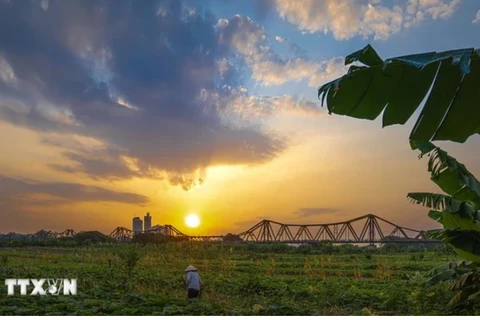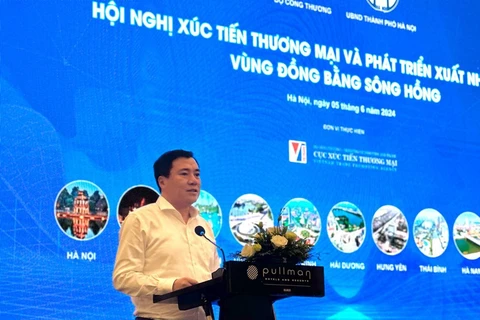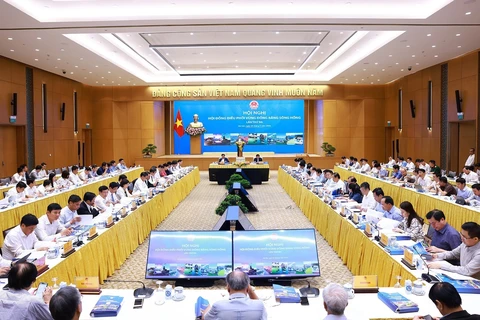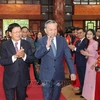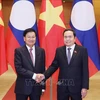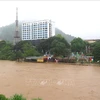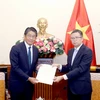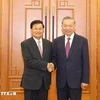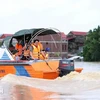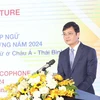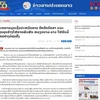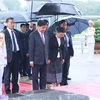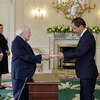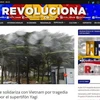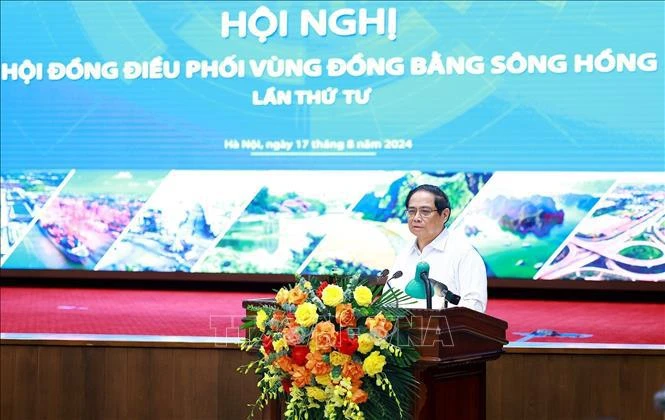
Hanoi (VNA) – Prime Minister Pham Minh Chinh on August 17 asked the Red River Delta region to take a pioneering role in innovation, and the utilisation of science-technology and results of the fourth industrial revolution.
Chairing a meeting of the Coordinating Council for Red River Delta Region, the Government leader said the region should also lead the way in developing the digital economy, green economy, circular economy, sharing economy, knowledge-based economy, and night-time economy, as well as in administrative reform, decentralisation associated with resources allocation, and in the improvement of enforcement capacity, inspection and supervision.
At the same time, the region should put people and businesses at the centre of development, and take the lead in mobilising social resources, especially public-private partnership, for sustainable development, ensuring social equality and progress and protecting the environment, said Chinh, who is also Chairman of the council.
He asked the region to review the implementation of set targets and tasks with a view to identifying which targets can be realised and which cannot, so as to work out suitable solutions.
For the operation of the council, the PM said it should pay more attention to connectivity between the Red River Delta and its adjacent regions, and propose specific institutions, mechanisms and policies to enhance regional connectivity and development, and optimise its unique potential, opportunities and advantages.
He requested ministries, agencies and localities to quickly work out a plan to implement the regional master plan with clear policy, concerted infrastructure, and smart administration.
Chinh said the region should follow the orientation of forming a national growth driving zone encompassing Hanoi and the areas along National Highways 5 and 18 running through the provinces of Bac Ninh, Hung Yen, Hai Duong, and Quang Ninh, and Hai Phong city; two sub-regions – the north and south of the Red River; four growth poles - Hanoi, Bac Ninh, Quang Ninh, and Hai Phong; and five domestic economic corridors and international connections, comprising the economic corridors of Bac Ninh - Hanoi - Ha Nam - Ninh Binh, Lao Cai - Hanoi - Hai Phong - Quang Ninh, Hanoi - Thai Nguyen - Bac Kan - Cao Bang, coastal Quang Ninh - Hai Phong - Nam Dinh - Ninh Binh, and Dien Bien - Son La - Hoa Binh - Hanoi.
The region needs to restructure its economic sectors, and reform its growth model towards modernity, promote cultural industries, science-technology and innovation services, education-training, and health care, and develop high-tech, organic, circular agriculture in association with new-style rural area building, he continued.
The PM emphasised the need to prioritise major projects that would directly impact socio-economic development, along with inter-regional and international connectivity, develop new and renewable energy, and upgrade irrigation infrastructure.
He pointed to other tasks regarding human resources development, climate change response, tourism development, administrative reform, investment environment improvement, trade promotion, and FDI attraction.
According to a report presented at the meeting, the region’s economy expanded 7.21% in the first half of this year, higher than the national average.
Its total State budget contribution in the first seven months exceeded 521 trillion VND (20.79 billion USD), the highest nationwide, making up 41% of the combined State budget revenue. During the period, the region’s export was valued at over 80 billion USD, accounting for 35% of the country’s total export turnover.
The region attracted 5.7 billion USD in newly registered foreign investment capital with 645 projects in the January-July span./.
